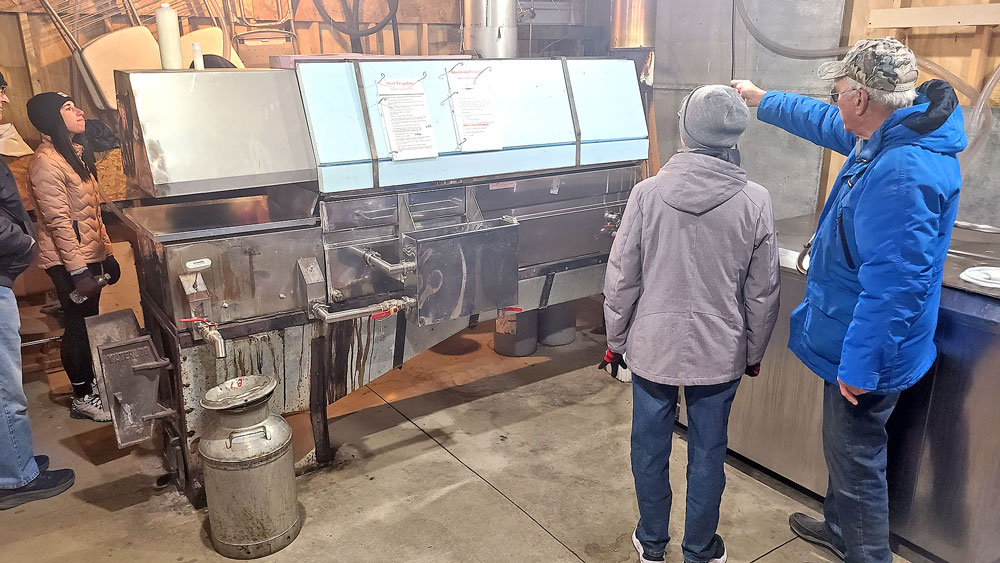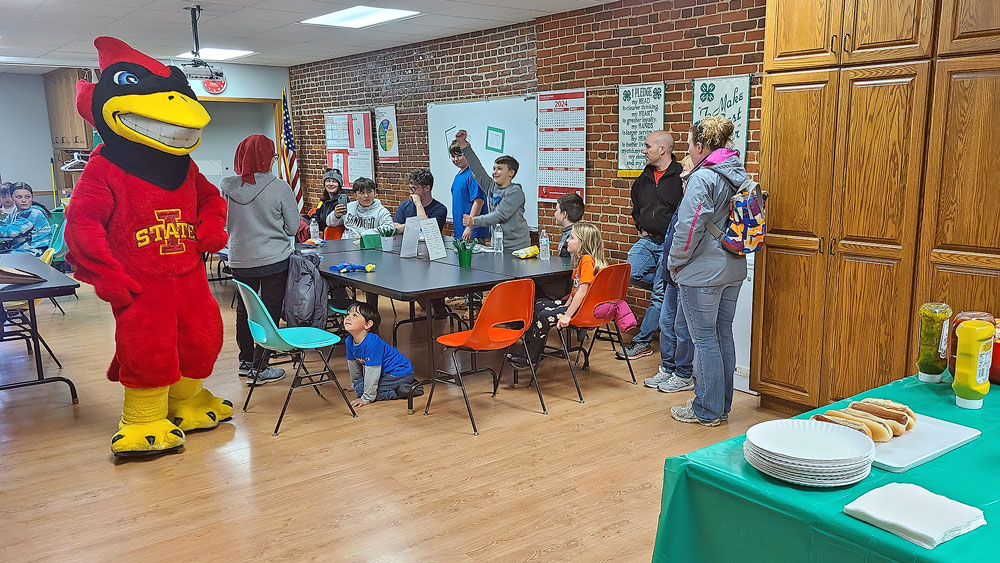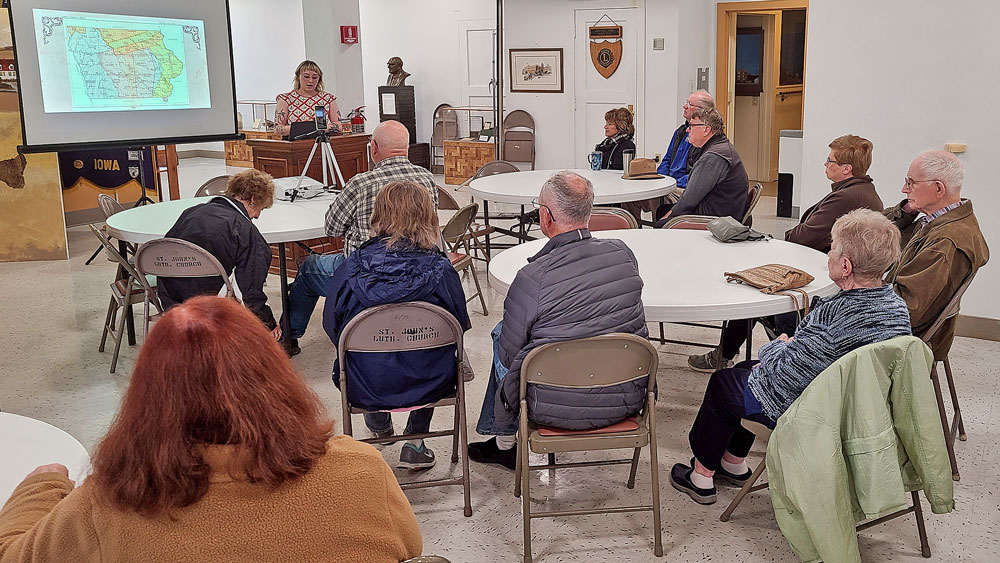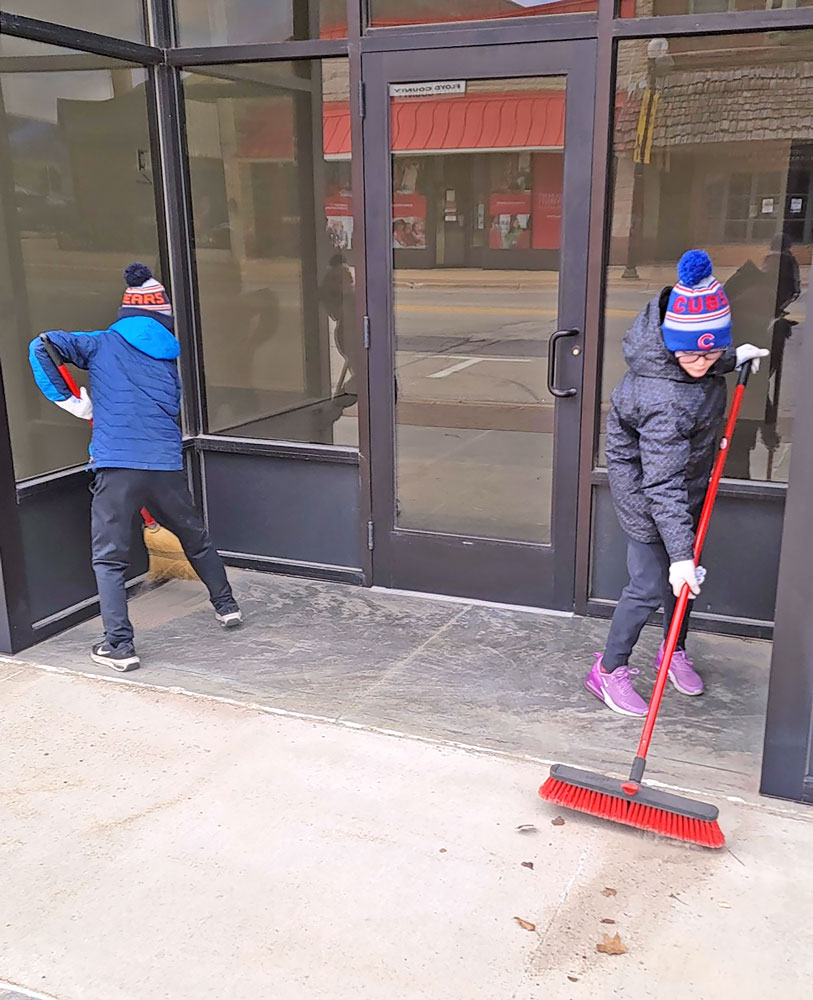Ag heritage talk brings on ‘did-you-know?’ moment
By Chris Baldus, cbaldus@charlescitypress.com
This is about drinking water, underground aquifers, farmers making a living, neighbors gagging on the wind, and my-concerns-are-bigger-than-your-concerns angst.
That’s just what millions of tons of pig poo will do to otherwise friendly Iowans.
The Floyd County Board has been neck deep in it — the confined animal feeding operations issue — for quite some time, but only recently attracted much attention by joining a cry for help.
A couple of weeks back, the county had a public hearing about joining an effort by Winneshiek and other counties to convince the Legislature to revisit the evaluation tool used to determine where these livestock factories can locate. A lot of folks showed up at the hearing. They filled the first floor assembly room at the courthouse.
The Floyd County Farm Bureau was represented at the hearing and sent a letter asking the supervisors not to join Winneshiek County “in supporting a moratorium on construction of new livestock facilities.”
Floyd County didn’t. Supervisors Doug Kamm and Linda Tjaden cut language about a suspension until the Legislature solves the problem. They left the part that asks the governor and lawmakers to look into the failings of the evaluation tool — the master matrix (wasn’t that a bad guy in the movie “Tron?”).
That change led to Supervisor Mark Kuhn being the lone vote against the resolution that he brought to the board in the first place.
Where things got interesting in that hearing was in the last few minutes when Kuhn responded to the Farm Bureau letter, inparticularly this part:
“Floyd County has a rich history as an agricultural county; from the site of the Hart-Parr company to the home of Zoetis, Mitas Tires, the Iowa State Extension service that is in its 101st year of helping farmers and our new chicken processing facility, Simply Essentials,” the letter signed by Floyd County Farm Bureau President Jay Matthews, said. “It is a history we want the county to continue. The resolution from Winneshiek County does not support that heritage!”
The letter also said how companies such as Simply Essentials, Hog Slat and Zoetis, “rely on a thriving livestock industry to survive. This proposal would send a signal to them that our county does not want the industry they support (agriculture) in our county.”
Kuhn, in his final comment before the vote said: “In the Farm Bureau’s letter it states, and I’ve heard it stated many times today, that our rich heritage in Floyd County is based on our agricultural heritage. They cite White Farm. They cite Zoetis —major industries — and they cite Simply Essentials. And they say this resolution does not support that heritage. We’d be restricting Simply Essentials.
“I want to say this: Pollution is pollution is pollution, no matter the source.
“All commercial and industrial manufacturing facilities such as Hart-Parr, Zoetis, Mitas Tire are under regulations to contain their emissions of toxic substances into the water and into the soils of Floyd County.
“Yet, the Iowa Legislature has over time nearly eliminated all the state provisions for confined animal feeding operations.”
Kuhn explained the irony: “Don’t you know that Floyd County is home to three EPA Superfund sites, and Hart-Parr and White Farm have been required to clean up the tailings and the oil from their plant and we’ve spent millions and millions of dollars for these companies to retain oil. We have two EPA Superfund sites in our community from the tailings of White Farm.
“We also have a superfund site for arsenic. Arsenic was dumped in the LaBounty dump site in Charles City for a number of years. Arsenic is a carcinogen.
“To use our heritage of Hart-Parr and Zoetis that we are somehow imposing on agriculture is false. It’s misleading. It’s ironic and it does a disservice to this dicussion.”
We don’t tend to talk much about those superfund sites. So here I go. First, the White Farm site is contained within what is now the 62-acre Oliver Development Park being marketed by the Charles City Area Development Corporation.
The Environmental Protection Agency’s website has this summary: “Starting in the 1920s, the White Farm Equipment Company’s operations generated foundry sand, sludges and dust from air pollution control equipment. Between 1971 and 1985, the plant intermittently disposed of foundry sands, baghouse dust and other industrial wastes at the site. About 650,000 cubic yards of these wastes were placed on site. The remedy was completed in 1995 with the completion of a cap of the landfill. EPA took the site off the National Priorities List (NPL) in 2000. Groundwater monitoring and Site maintenance are the remaining actions being conducted at the Site.”
The LaBounty site was removed from the National Priorities List in 1993. It’s on the west side of the Cedar River, roughly across the street from the new off-leash dog park, behind the row of businesses there along South Grand. The EPA summary says a veterinary pharmaceuticals company disposed of more than 6 million cubic feet of sludges there from 1953 to 1977, “contaminating groundwater and surface water with volatile organic compounds and arsenic. Following cleanup, operation and maintenance activities and monitoring are ongoing.”
The Shaw Avenue Dump site EPA summary says that from 1949 to 1953, a veterinary pharmaceuticals company disposed of an estimated 14,000 to 28,000 cubic feet of arsenic-contaminated solid waste in two areas in the northern half of the site and an estimated 10,000 tons of sludges between 1949 and 1964 in north and south parts of the site. “Following cleanup, operation and maintenance activities and monitoring are ongoing,” it says.
Contact Chris Baldus at cbaldus@charlescitypress.com.









Social Share